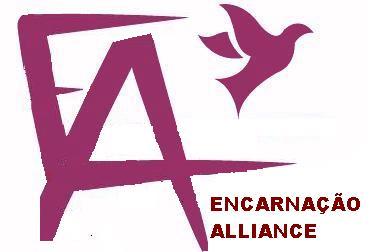|
Cross-course Integrations in the MATUL Degree There are a number of elements which track through all courses in the MATUL. They include:
The attached are some initial discussions as to how some of these apply. It would be valuable if:
|
1. Themes related to churchplanting
| The church is the primary agent of transformation. | |
| The power of transformation comes largely from the power of the Word, Spirit and community of faith. | |
| Movements of churches can mobilize and generate more people resources that engage with the community. | |
| Christians must proclaim the gospel as they engage the community. | |
| Church should mobilize the community. |
TUL 505: Language & Culture Acquisition
The purpose of learning language and culture is to understand the community well in order to plant churches among them.
TUL 520: Urban Spirituality
Christian Spirituality guides and sustains the urban poor worker (churchplanter) and transforms the community.
TUL 530: Urban Poor Church Leadership
This course will help the candidates to plant more holistic churches, manage them and train more churchplanters/leaders.
TUL 540: Urban Reality & Theology
This course will give wisdom / insights to churchplanters (workers) to understand the causes of issues (poverty, oppression, violence) in slum and appropriate responses.
TUL 550: Service to the Marginalized
This helps the churchplanters to acquire special skills to embrace special people (drug addicts, prostitutes, streetchildren)
TUL 555: Educational Centre Development
This course enables the church to meet a basic need of the community and the church
TUL 560: Theology & Practice of Community-based Economics
This helps the churchplanter and church to move towards economic sustainability, ultimately helping the whole community.
2. Male and Female Perspectives
Making sure courses reflect both male and female perspectives. This is not a context for the introduction of feminism, but outworking the Biblical teaching that male and female are of equal value, may be gifted in similar ways, etc. in the context of the Biblical affirmations of authority in church and family, and the cultural context of each school.
|
COURSE |
WOMEN’S ISSUES |
|
TUL 500 (RRR) |
Role and rights God’s concern for equality Female imageries of God Justice against oppression Jesus, Paul and early church model |
|
TUL 505 |
Gender Sensitive Hermeneutics Gender equality Affirming Femininity |
|
TUL 505 (Language) |
Understanding Gender Dimension Culture (How men and women are regarded) (Productive & Reproductive regarded) Inclusive Language - Analysing Gender Inequality Value of Women’s Work in Language |
|
TUL 520 (U.S) |
Understanding the difference between men & women’s view of spirituality Spirituality that empowers women Help men assess their masculinity |
3. The Kingdom of God
This will be the core motif in the Introduction to the Scriptures, utilizing Rob Bellingham and Art Glassers materials, and emphasizing the Kingdom in relationship to issues that slum pastors are daily confronted with, such as poverty, oppression, social reconstruction, the land, community organization etc.
It will again be strongly emphasized as an underlying theme in the community Transformation course and the Churchplanting course.
(See the power point and notes on the kingdom of God in the Grassroots churchplanting course on the web at www.urbanleaders.org )
4. Kingdom Economics
Since the central unresolved issue of the slums is poverty, no training of movement leaders can ignore Kingdom economic theology and its outworking. The aim is that each graduate can train others in Biblical economics and know how to enable congregations to move step by step through basic financial management, cooperative savings, small businesses to levels of economic sufficiency. They may or may not become entrepreneurs themselves. There are two courses focusing on this in the degree and it is intended that each student work with a business mentor through 18 months of the degree.
The themes begin with the nine principles of Kingdom Economics as they recur across the scriptures in the Introduction to the Bible (See Principles of Kingdom Economics.ppt in the Theological Framework of the Grassroots Churchplanting materials on the web at urbanleaders.org).
They need readdressing within the Churchplanting and Community Transformation courses.

